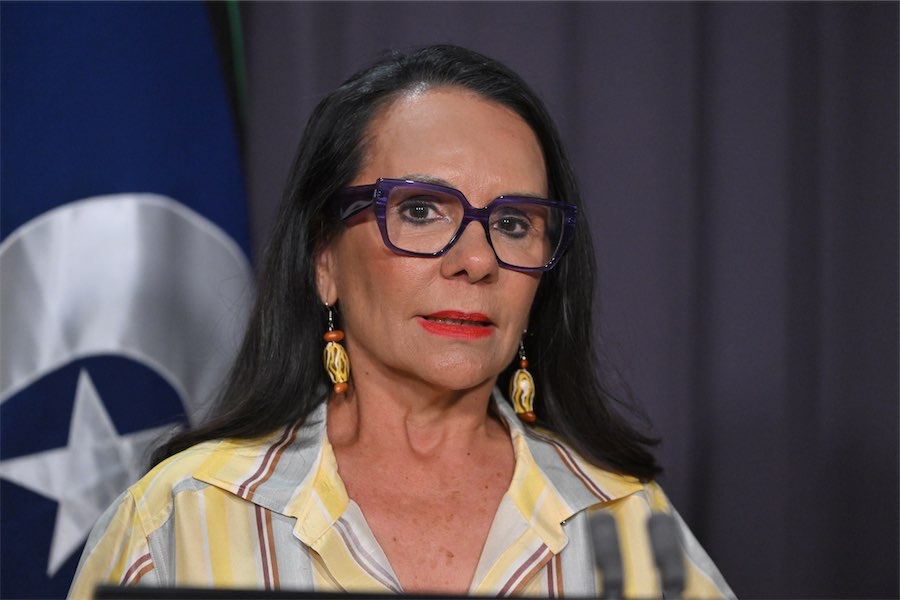
By Michelle Grattan in Canberra
The Albanese government will commit $707 million for a new Remote Jobs program that will create 3000 jobs over the next three years.
In its first major indigenous affairs initiative since the defeat of the referendum last year, the government says this is the initial step in replacing the widely-criticised Community Development Program (CDP) with “real jobs, proper wages, and decent conditions”.
On Tuesday the government will release a report for 2023 on closing the gap and its implementation plan for 2024. Jobs will be a centrepiece of the new initiatives but there will be other measures including on health and connectivity.
Minister for Indigenous Australians Linda Burney said the new program would “put communities in the driver’s seat to create local jobs and businesses”.
“For too long, people in remote communities have missed out on economic opportunities and have been stuck in cycles of poverty,” she said.
“People in remote communities should have access to the benefits and dignity of work – for themselves, their families and the next generation.”
The government says the program, starting in the second half of this year, will be “grounded in self-determination”, allowing communities to decide what jobs are created, such as in community services and the care sector, hospitality and tourism, horticulture and retail.
There will be a new $185 million Community Jobs and Business Fund to which local and community-owned businesses can apply to finance equipment and capital needs.
The jobs program will be implemented in partnership with indigenous people, with the government stressing “it will be about remote communities deciding what will make the biggest difference locally”. It won’t be “a one-size-fits-all program”.
The new program will operate where the CDP already exists.
A scathing Productivity Commission report last week stressed the importance of self-determination, and criticised governments for not getting into the mindset required for shared decision-making with Indigenous people.
The commission said it had heard a clear message from indigenous people about “the lack of power sharing needed for joint decision-making, and the failure of governments to acknowledge and act on the reality that Aboriginal and Torres Strait Islander people know what is best for their communities”.
At present two key closing the gap employment targets are not on track or not on track in key areas.
Target 7 is to increase the proportion of Indigenous youth aged 15 to 24 who are in employment, education or training to 67 per cent by 2031. It’s not on track.
Target 8 is to increase the proportion of Aboriginal and Torres Strait Islander people aged 25 to 64 who are employed to 62 per cent by 2031. This target is not on track in the NT, where a high proportion of indigenous people live in remote communities and are unemployed.
Assistant Minister for Indigenous Australians and Indigenous Health Malarndirri McCarthy said: “As a former participant of a remote jobs program myself, I know all too well the importance that meaningful employment has on economic empowerment, health, happiness and general wellbeing”.![]()
Michelle Grattan, Professorial Fellow, University of Canberra. Republished from The Conversation.
Who can be trusted?
In a world of spin and confusion, there’s never been a more important time to support independent journalism in Canberra.
If you trust our work online and want to enforce the power of independent voices, I invite you to make a small contribution.
Every dollar of support is invested back into our journalism to help keep citynews.com.au strong and free.
Thank you,
Ian Meikle, editor








Leave a Reply